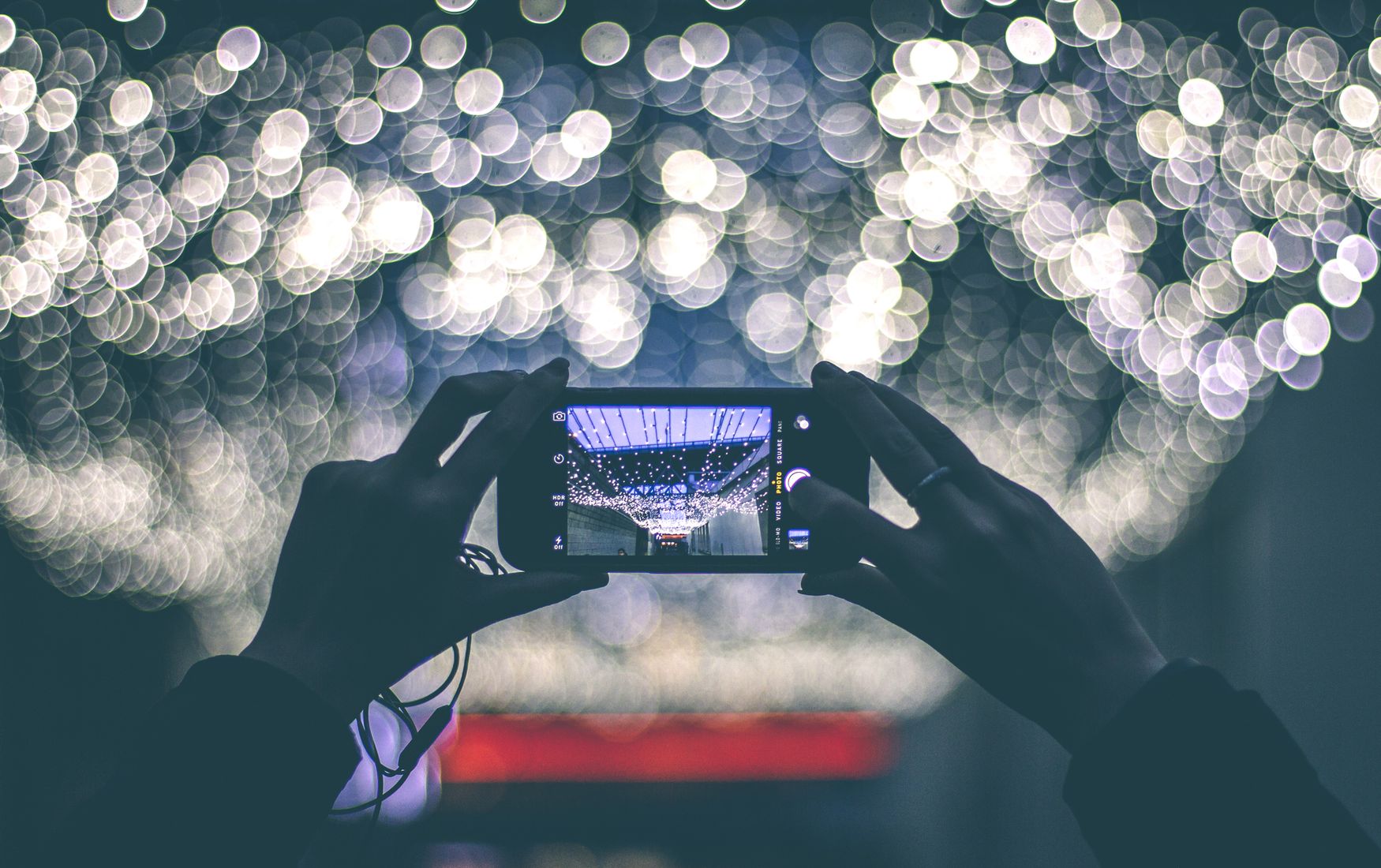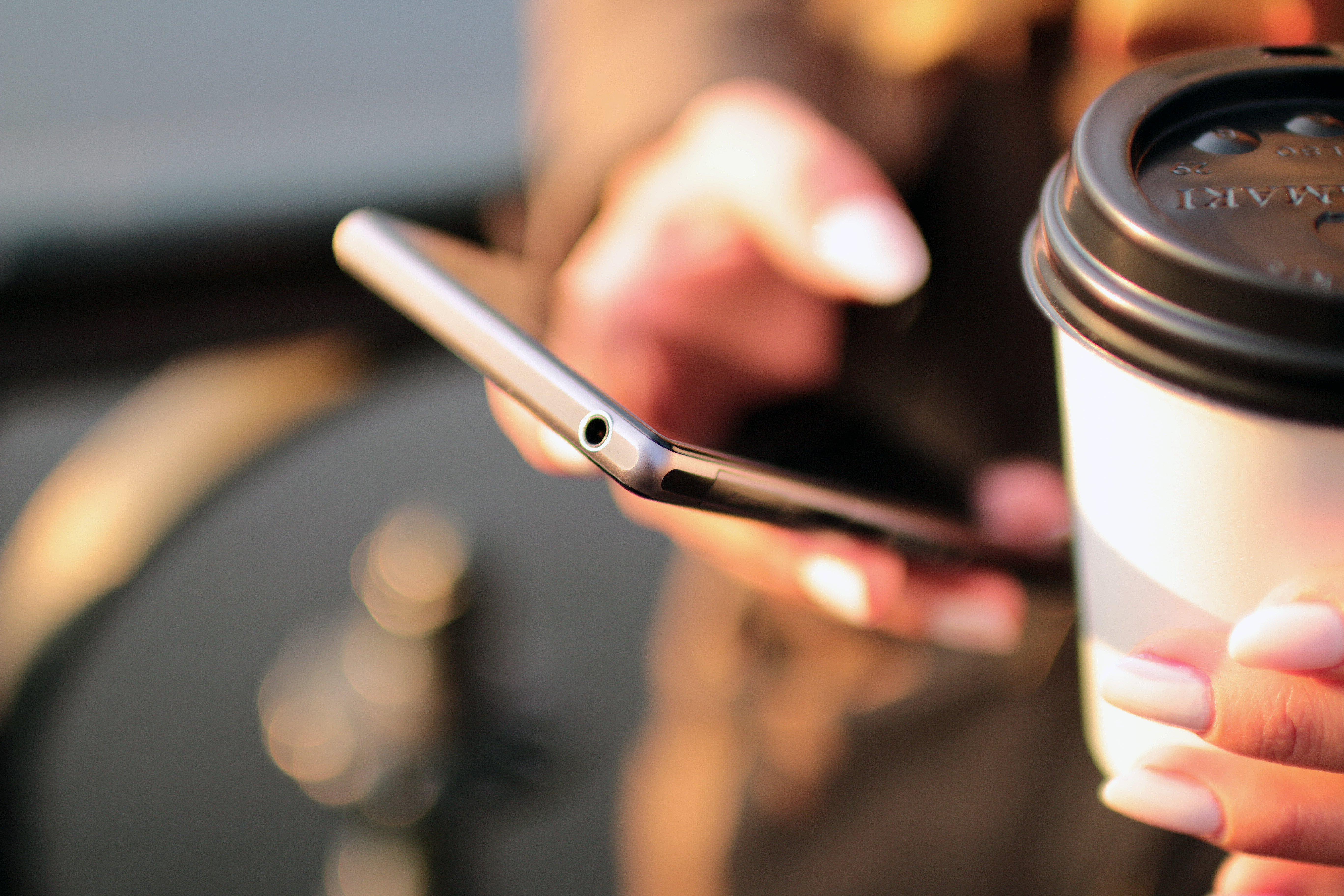
Presence is the Secret to Living Fully Alive
April 11, 2016
The Places Where God Shows Up
April 19, 2016What the Phub?
Phubbing, or phone snubbing “the act of snubbing someone in a social setting by looking at your phone instead of paying attention.”If this was a vocabulary assignment in school and you had to use it in a sentence it might sound something like this. “Stop phubbing me and be present!” We see it happen all the time. A couple sitting at dinner waiting for their food and both people are looking at their phones. This behavior has almost become socially acceptable, and in doing so, we as a society have opened ourselves to some very serious implications on how we live our life.

The Statistics
The actual statistics can look alarming on paper, but if we are honest with ourselves, are we really surprised? In a 2015 survey, researchers found that 87% of people use their phone while spending time with family and friends. We do it without thinking because it’s become second nature to us.
If we’re being completely honest though, we’ve all done our fair share of Phubbing.
In the same report by Deloitte, the survey revealed that Americans check their phone on average 46 times per day, which is roughly 3 times per hour. The numbers vary by age groups. But even those numbers sound conservative. Phones have literally changed our society and how we interact with others. They are no longer just phones, they are messaging devices, televisions, computers, cameras, and video recorders. They have single handedly replaced all of our devices which is why it is so easy to phub.
The Negative Effects of Phubbing
How many times have we been at lunch with someone who keeps checking their phone. It’s annoying. The message they send by doing that, is that whoever is texting them, or whatever they are looking at, is more important than we are. It might be true, but at least have a little couth. And by couth, I mean try to pretend like it’s not true.
Phubbing jokes aside. The problem with phubbing is that it has become an acceptable way to act around other humans. Which is ironic because we use our phones to connect with others while simultaneously and inadvertently disconnecting from the people we are with. As much as phones have revolutionized the ways we do business and interact with others in a positive way, there are areas where phubbing is negatively affecting our lives.
It Ruins Romantic Relationships
We enter relationships to do life with the another person, yet somehow find so many ways to be disconnected from them. So it’s not shocking that researchers at the Hankamer School of Business of Baylor University found that partners of phubbers experienced more conflict and greater dissatisfaction with their relationships. What they found is that nearly half of those surveyed were phubbed by their partners and 36.6 percent even felt depressed by it. These are some pretty serious findings. Is seeing the latest celebrity tweet or picture of our third cousins’ baby taking a bath really worth sacrificing the feelings of those most important to us? Without realizing it, when we choose social media over the present relationship, we send the message to our partners that they are not a priority. It’s no secret relationships take intentional work. Not the 9-5 kind of work, but more like the work of watering a flower and watching it flourish. It takes nurturing and time, and we can’t nurture a relationship if we aren’t present. Relationships are challenging enough, there is no need to find new ways to add stress to them.
It Sends the Wrong Message to the Person You are With
Phubbing touches on one of our basic human needs, to feel wanted. To feel valued by those we are with. We have developed an obsession with responding to text messages or answering phone calls right away, especially phone calls because no one makes calls anymore. When we do get calls we instantly assume “something must be wrong.” What did people do before cellphones? They let their answering machines take messages and then called back when it was convenient. In reality, the majority of text messages and phone calls wait, even just a few minutes. I know it’s hard to put our phones on silent and not look at them every fifteen minutes. We often feel lost if we don’t have our cellphones immediately accessible. But what if instead of feeling deprived by putting our phones away, we see it as an opportunity to practice the golden rule, to treat others as we’d like to be treated. Imagine what a difference this small act would make when we are talking about our most difficult days, our happiest moments, or simply catching up on day to day details, and the person sitting across the table is completely engaged with us.
It Keeps You from Experiencing Life as it’s Unfolding in Front of You
I have developed this annoying habit of checking my social media feeds in public. I don’t just do it when I am alone, I do it when I am with my friends and family too. It’s become second nature, a thoughtless act. The problem is life is happening all around me while my head is down looking at other people’s idealized version of their lives unfolding on my phone screen. Life is too short and time too fleeting to be distracted from living in the present. Its funny, how we take pictures of moments we want to capture instead of simply being present as those moments are happening. How many times have we spent more time arranging the perfect picture to post than actually taking in the moment? It’s like we are living through the camera lenses of our phones, instead of the experience as it unfolds. Once the moment is gone we can’t relive it. Looking at our phones too often can rob us of experiencing life. When our minds are occupied with our phones, we miss having the memory of what caused the laughter at dinner with family, or joy of witnessing the look in our kids eyes when we watch them accomplish what they didn’t think they could, or being able to offer encouragement after we notice the frustration in a friend’s face. It’s the little things we miss when we decide the world inside our phone can’t wait.
And when I do a little soul searching on this, I have to ask myself, why is it that what is happening to someone else, maybe someone I haven’t talked to in 10 years, seems more important than the living breathing person in front of me. Why are we as a society so afraid to be in the present moment, in community with people?
Tennessee Williams once wrote, “Has it ever struck you that life is all memory, except for the one present moment that goes by you so quickly you hardly catch it going?” When people near the end of their life, they always talk about how they wished they’d spent more time with the people they loved. We don’t want to get to the end of our life and wish we’d spent more time being present with our family and friends. So stop phubbing and live life without regret.
(This article was written by Kara Davenport and David Oceguera)



